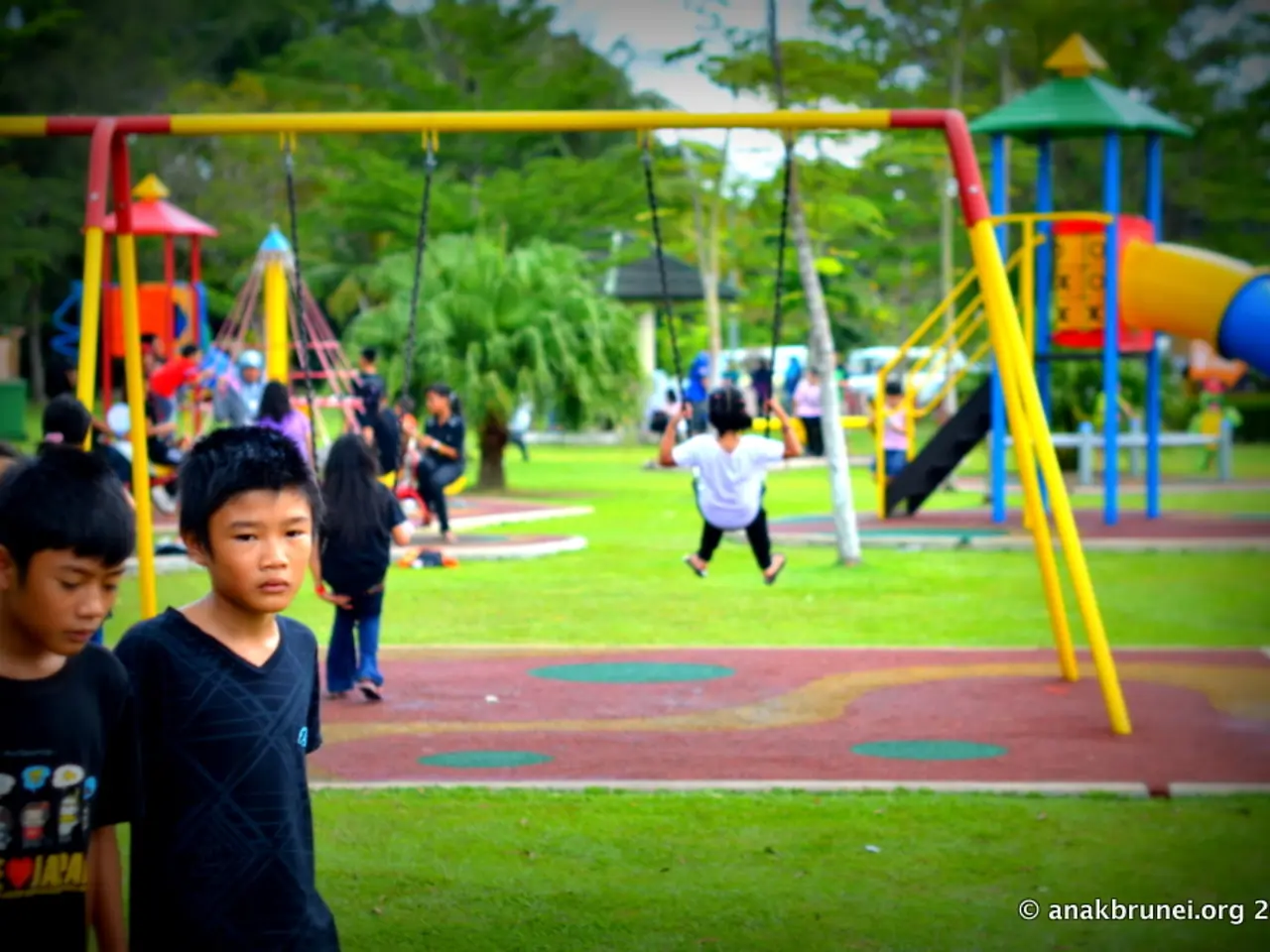Stimulating Scientific Curiosity through Outdoor Activities: 7 Creative Strategies that Inspire Awe
In an effort to foster a love for nature and encourage scientific thinking, the 'Nature Scavenger Hunt With Scientific Observations' has been introduced. This exciting initiative is designed to engage participants, particularly children, in exploring the outdoors by finding and identifying natural objects.
The goal is to nurture curiosity, observation skills, and scientific thinking through hands-on outdoor learning. Here's a rundown of some of the activities that make up this engaging scavenger hunt:
- Rock Collecting Expeditions: Compare the crystal shapes found in nature with those grown in the lab, discussing how time and conditions affect crystal development.
- Weather Monitoring Station: Build a backyard weather station using basic tools like a rain gauge, outdoor thermometer, and wind indicator.
- Food Web Diagrams: Design visual food web diagrams using string to connect different organisms your kids have observed interacting.
- Animal Behavior Tracking: Create behavior tracking charts where kids can document which animals visit at different times and seasons.
- Water Flow and Pressure: Build simple water walls and sprinkler systems to investigate water flow and pressure.
- Density Towers: Create density towers with different liquids to show how materials separate by weight.
- Root Development Observation: Use clear containers to observe root development and track growth rates with fast-growing plants.
- Observation Stations: Set up dedicated observation stations with notebooks and binoculars near bird feeders or natural gathering spots, encouraging kids to record feeding patterns, territorial behaviors, and social interactions they witness daily.
- Ecosystem Mapping: Conduct ecosystem mapping activities where children track who eats whom in your backyard habitat.
- Soil Testing and pH Analysis: Conduct soil testing and pH analysis by collecting samples and comparing acidity levels.
- Permanent Observation Plots: Establish permanent observation plots in your yard where children can monitor the same plants throughout entire growing seasons.
- Scratch-Testing Activity: Set up a scratch-testing station using the Mohs scale for kids, using fingernail, penny, nail, and glass tile. Teach them to test carefully by scratching softer materials against harder ones, starting with a fingernail against talc or gypsum.
- Plant Growth Comparison Studies: Conduct side-by-side plant growth comparison studies varying sunlight exposure and water amounts.
- Reflection Stations: Set up reflection stations using mirrors, metallic surfaces, and water containers to show how light bounces and bends.
- Evaporation and Condensation Experiments: Include evaporation and condensation experiments to connect with weather patterns.
- Water Stations: Set up water stations to investigate density and buoyancy through floating and sinking experiments with various objects.
- Measurement Activities: Create measurement activities by marking shadow lengths at different times, helping children understand that shadows are longest during early morning and late afternoon while becoming shortest at midday.
- Salt Crystal Gardens: Create salt crystal gardens using shallow dishes filled with supersaturated salt water placed in sunny outdoor locations.
- Shadow Tracking Station: Position a shadow tracking station where kids can observe how shadows change as the sun moves across the sky.
- Sundials: Build functional sundials using paper plates, pencils, and stones to mark hourly positions throughout the day.
- Hanging Crystal Experiments: Hang string crystal experiments from tree branches or outdoor structures, letting children watch crystals grow over several days.
Remember, safety is paramount. Use safety glasses and adult supervision for the scratch-testing activity.
This scavenger hunt promises to be an exciting adventure that combines the thrill of exploration with the joy of learning, making science fun and accessible for children.
Read also:
- Latest Principal Information Bureau Announcements on 12-09-2025
- Guidelines for resuming operations: Strategies for hotels to utilize their resources beneficially during the ongoing lockdown period
- Human Bacteria Unveil Fresh Understandings Regarding Human Decision Processes
- Parliamentary Debates in the German Bundestag This Week








